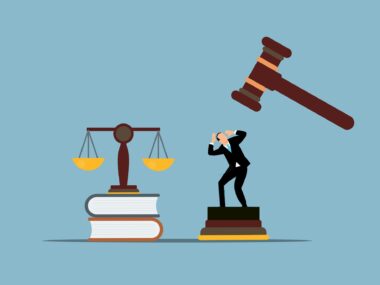Texas has been hit with two lawsuits over their Texas App Store Accountability Act (TASAA). The law would force users to verify their age before downloading mobile apps or making in-app purchases. If that user turns out to be a minor, they’ll need parental consent. Not just once, but potentially every time. The law is set to take effect on January 1, 2026, but these lawsuits might decide it does.
TASAA is part of a growing list of age-gate legislation that gives states the right to dictate how people can use the internet. It burdens app stores with the responsibility of policing how kids use their devices.
Two Lawsuits, One Message
The first lawsuit comes from the Computer & Communications Industry Association (CCIA). It’s a trade group representing companies like Apple, Google and Amazon. They accuse TASAA of violating the First Amendment by restricting access to lawful content. CCIA accused Texas of forcing developers to jump through hoops modifying their apps to comply with the law.
The second lawsuit comes from a Texas student group called Students Engaged in Advancing Texas (SEAT), joined by two high school students. Their argument is that TASAA infringes on people’s right to access protected information regardless of their age. They also warned of the dangers of collecting personal information for age verification. Speaking of privacy risks…
The Privacy Risks No One Wants to Talk About
How exactly are developers and app stores supposed to verify a user’s age? Will TASAA force users to upload pictures of their government-issuer IDs? Will they have to enter their date of birth? Scan pictures of their faces?
Also, where are app stores going to store all that information? If it’s through a third-party verification vendor, then we know how that’s going to end. You have to be very careful choosing the right company to entrust with sensitive data that can identify someone. If their security isn’t strong, they’ll get hacked. All that personal info will go into the wrong hands.
It’s the same pattern we’ve seen before. A law designed to protect ends up putting more people at risk. Every parent who uploads their child’s personal information would be trusting a company that might not have the infrastructure to keep it safe.
When Lawmakers Don’t Understand the Internet
The biggest flaw in TASAA is that it was written by politicians who don’t understand modern technology. Legislators are crafting these laws policing devices and app stores, but they have little clue on how they actually work.
Take Android phones, for example. Google will release updates for certain system apps (like the one that keeps your Wi-Fi connection stable) through the Play Store. This process ensures the phone will get important updates when needed. If TASAA passes, parents would have to regularly verify their child’s age just to make sure their devices are updated. That’s insane.
This is what happens when lawmakers try to control the internet without grasping its infrastructure. They end up building laws that punish everyone for problems that should be handled at home.
TASAA Shouldn’t Be Responsible for How Kids Use The Internet
Laws like TASAA assume that parents shouldn’t be trusted to manage their children’s digital lives. That someone else, preferably a corporation under state pressure, should step in instead. Yes, these laws are meant to protect kids from accessing inappropriate content online. Yet that responsibility should fall on parents alone.
We could use legislation that clarifies the roles parents have in preventing their children from encountering troubling content. App stores could invest in better systems for verifying ages that don’t require submitting government-issued IDs. They could give families tools to monitor usage or set restrictions.
TASAA isn’t the way to go. The idea that the state of Texas should control how everyone accesses the internet is a step too far.
We’ll see if these lawsuits will succeed in blocking it from taking effect on January 1, 2026.






